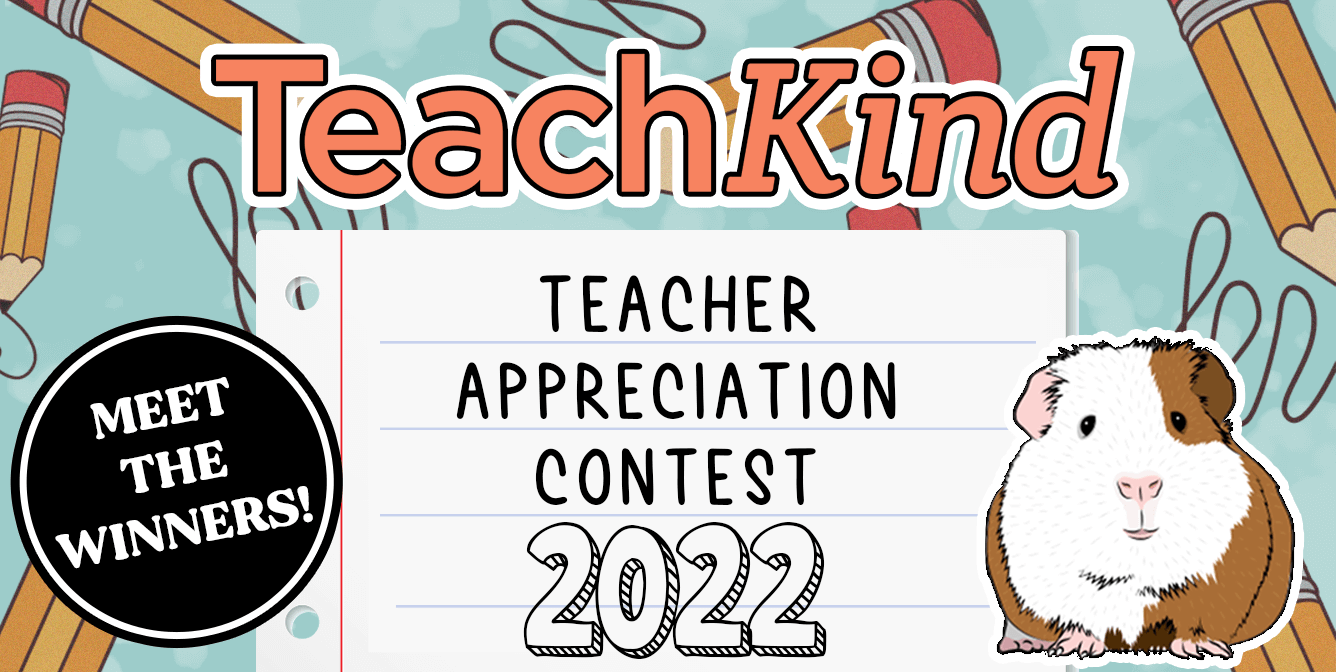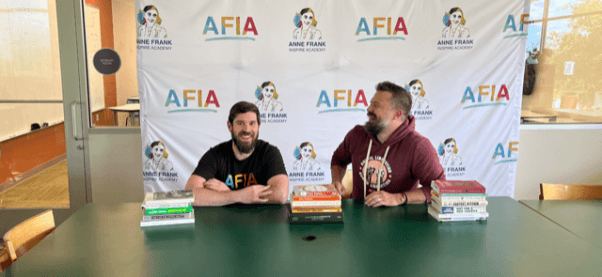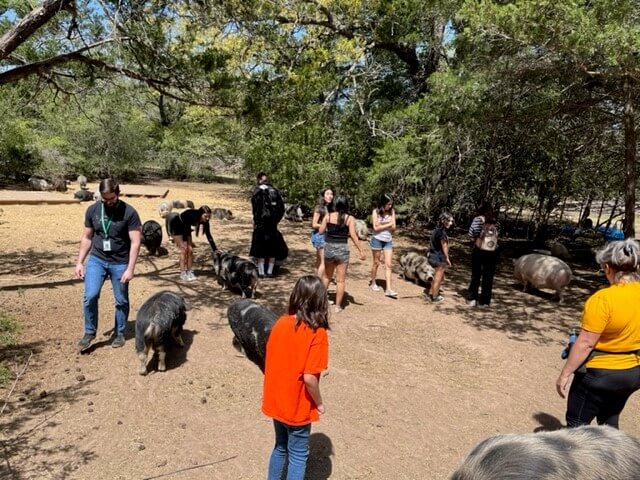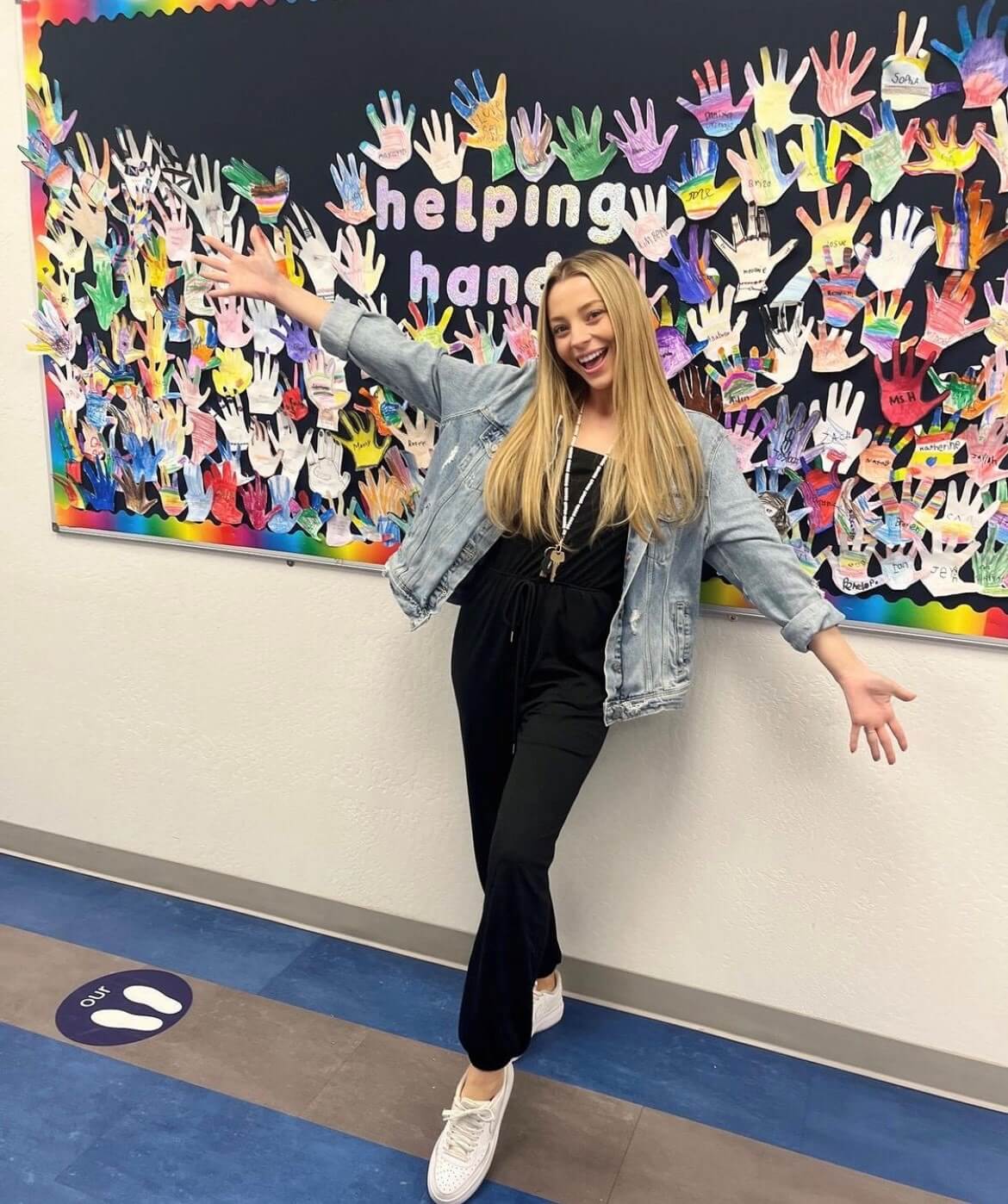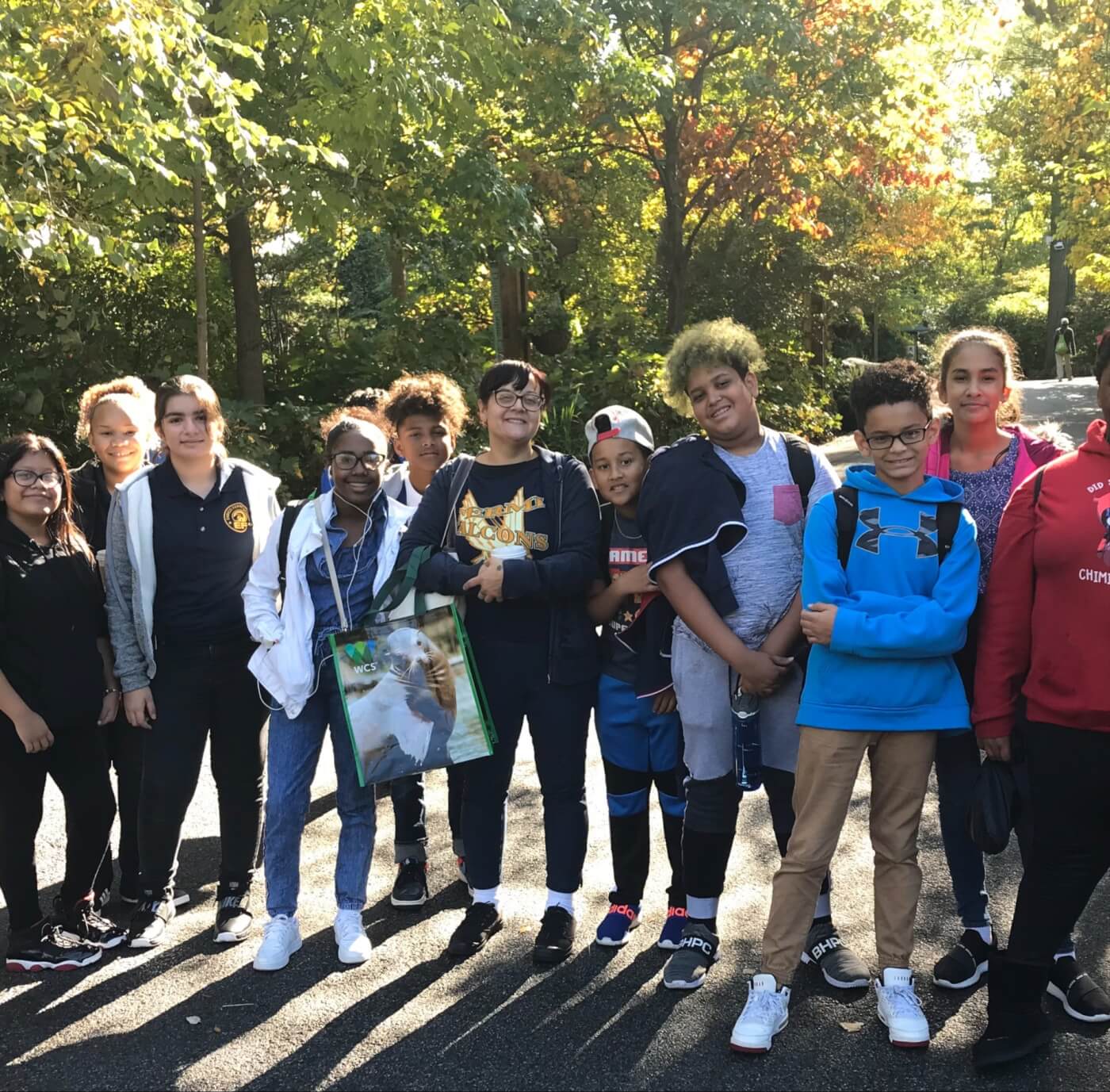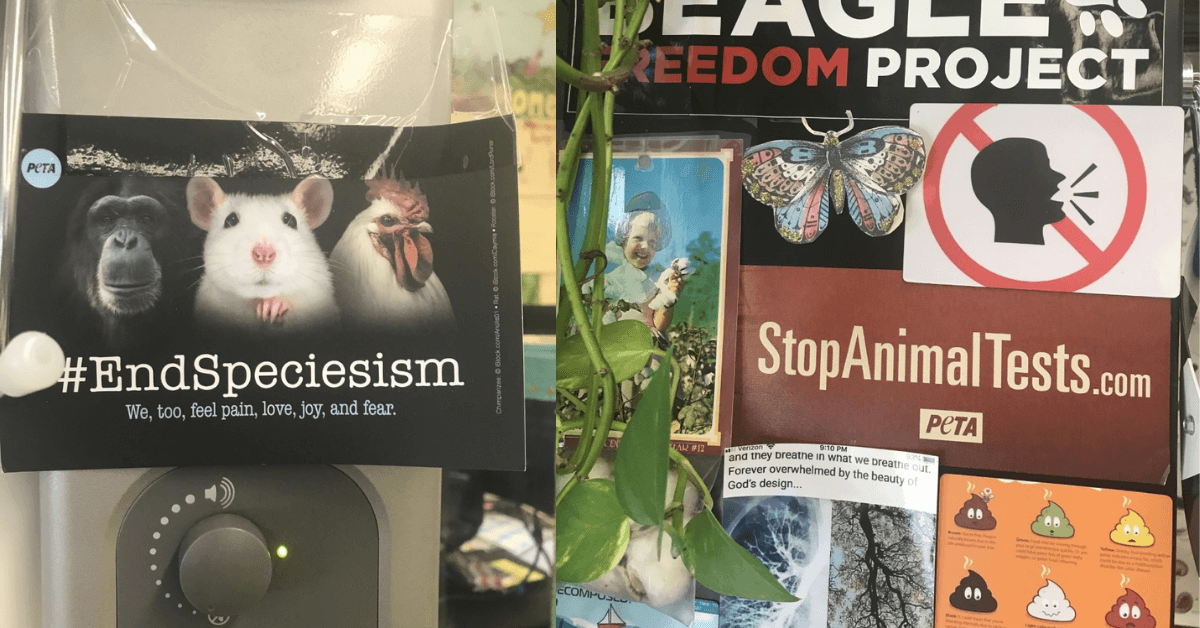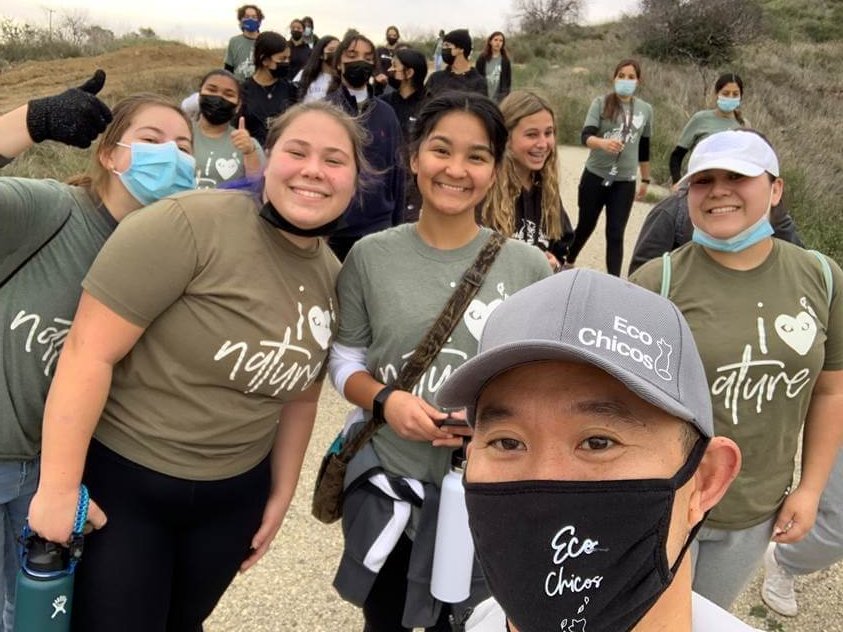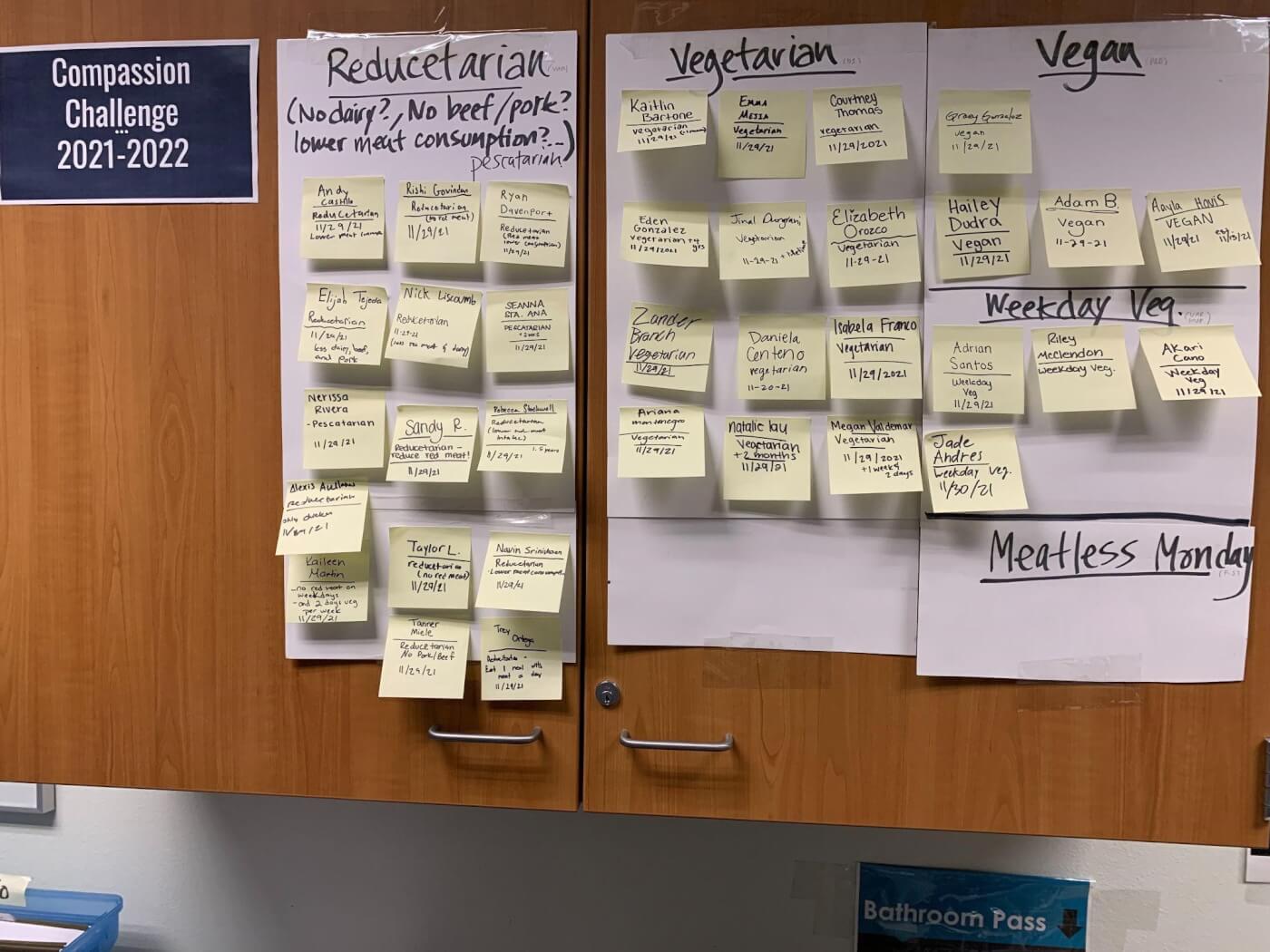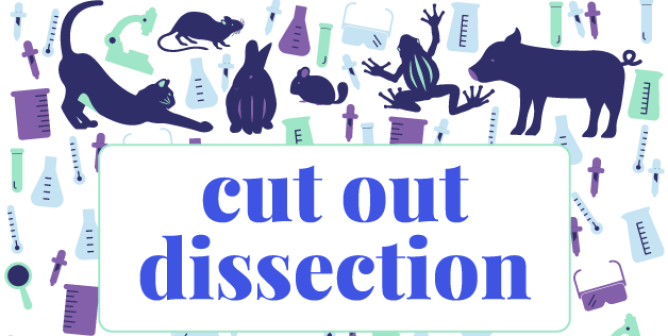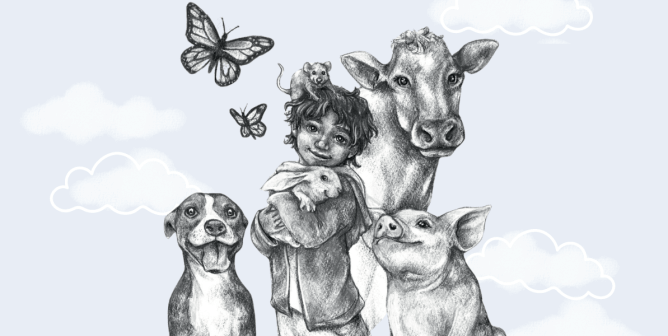Meet TeachKind’s 2022 Teachers of the Year (Yes, There Are Two This Year!)
May is national Teacher Appreciation Month, and as always, TeachKind hosted our annual Teacher Appreciation Contest in search of our 2022 Teacher of the Year. With teacher burnout at an all-time high, educators across the world deserve a round of applause—they have risen to the occasion when students and animals needed them most, continuing to teach young people to respect and be kind to all sentient beings—no matter their species. We’re delighted to recognize five inspiring teachers who are building a more compassionate world by teaching empathy and to spotlight the innovative ways they’re doing so, both in and out of the classroom.
Thank you to everyone who entered or nominated someone for this year’s contest. With so many impressive entries, narrowing them down wasn’t easy—but we know that these humane educators will inspire you as much as they did us. Meet our marvelous Teachers of the Year and runners-up:
TeachKind’s 2022 Teachers of the Year
Zach Sokoloski and Steve Calamars (Anne Frank Inspire Academy, San Antonio, Texas)
For the first time, TeachKind has selected two educators to be our Teachers of the Year! Zach Sokoloski and Steve Calamars are longtime friends who teach together at Anne Frank Inspire Academy (AFIA), a public charter school in San Antonio. Zach taught English for 14 years but recently left a larger school district and became certified to teach social studies in his new role as inquiry facilitator at AFIA, where he helps students explore their interests and pick an “inquiry project” to work on each quarter. His job is to help support the other teachers at AFIA, including Steve, while also assisting students with their projects. Zach writes, “It’s a lot of fun and I’m so glad I made the switch to this experimental model. Some of the kids are working on some really cool things—one kid is tackling the issue with plastics and recycling, another group is spotlighting the cruelties of the fishing industry and the impact of oil spills, and [a] group of ninth graders is working on [a] partnership with [a pig rescue in Central Texas].” Steve teaches English at AFIA, and together, he and Zach use their passion for philosophy, literature, and the humanities to guide their students in questioning speciesist ways of thinking.
On their recent trip to a pig sanctuary in Central Texas, the pair’s students were able to meet and interact with pigs who were rescued from abuse, abandonment, neglect, slaughter, and animal testing and make the connection between the food on their plates and the living, feeling individuals who suffer as a result. The trip was so influential that some students decided to stop eating meat. Shortly after that, Zach received an e-mail about PETA’s traveling “Without Consent“ exhibit, which reveals the long history of suffering inflicted on nonconsenting animals in laboratories—and within one day, he and Steve had planned another exciting trip and traveled with a small group of about 10 students to see the thought-provoking installation.
The pair work hard to build trust with students and their families as well as school administrators so that they can plan fun and engaging (and sometimes last-minute) activities like this and otherwise enjoy flexibility and autonomy in their work as educators. Steve notes that they have always received positive feedback from the school community on their inclusion of animal rights in their curricula, because they make sure to build strong relationships and “a community of trust” and because the families know that they have their children’s best interest at heart. TeachKind teachers like Zach and Steve realize that it’s educationally appropriate to expose students to new ideas and perspectives—and that real-world content engages learners more and is integral to a well-rounded curriculum.
Zach makes a point to allow for all opinions in his learning space, whether students are for or against choices that benefit animals—but when they start learning about argument-building and persuasive writing, the students realize that there’s no justification for exploiting animals. Many of Zach’s students are passionate about environmental issues, so he points out how animal-related issues are closely connected to climate change, deforestation, and pollution. Zach and Steve have two senior students who are particularly interested in animal rights topics. Together, they started a book club, which quickly grew to include Zach’s father, who started eating fewer animal-derived foods because of what he learned from the readings. One of the students, Armando, is a passionate entrepreneur who seeks to incorporate vegan ethics into his business model, which involves creating and selling vegan wallets made of cactus leather.
Together, Zach and Steve explore social justice issues like racism, sexism, and speciesism with their students, and they’re considering ways to use TeachKind’s “Challenging Assumptions” curriculum in their classrooms. Peter Singer’s book Animal Liberation has had a huge impact on both educators, in terms of both what they teach their students and the lifestyle choices they make, and they draw inspiration from other social justice texts as well.
Zach also works as an adjunct professor at Northwest Vista College (part of the Alamo Colleges District), where he teaches an Introduction to Philosophy course that heavily incorporates feminist philosophy and animal rights. He holds an M.A. in philosophy, and his master’s thesis focused on factory farms and more compassionate ways to eat and live. He is currently taking graduate classes in the hopes of obtaining a Ph.D. and being able to spend more time writing about these issues.
Both Zach and Steve grew up in Texas, where hunting and raising animals for food are common. Steve recalls that from a young age, he felt that killing and eating animals was wrong. As a young adult, he stopped eating meat and now strives to live his life in accordance with Singer’s philosophy. Steve is a weightlifter and enjoys showing his students, particularly the young men, that it’s not necessary to eat meat to build strength and bulk up. He’s raising his two daughters to be compassionate toward animals, starting with what they eat, and he often brings them along on animal-friendly field trips with his students.
Congratulations, Zach and Steve, and thank you for all that you do for animals!
TeachKind 2022 Teacher of the Year Runners-Up
Taytum Beasley (Vista College Preparatory, Phoenix, Arizona)
Taytum received numerous nominations, and it’s clear why—the kindergarten teacher at Vista College Preparatory, a charter school in Phoenix, uses her creativity to teach her young students about the importance of not only being responsible animal guardians but also having respect for and showing kindness to all living, feeling beings. She’s particularly passionate about helping stray, abused, and neglected dogs in the Phoenix area, where the cruel practices of chaining dogs and leaving them outside for their entire lives is common. After she learned about the dog-meat trade and realized that all animals want to live, she went vegetarian, and she’s now vegan.
Using compassionate children’s books, PETA Kids stickers, and other empathy-building materials, Taytum provides her students with the vocabulary and knowledge to turn their natural interest in animals into compassionate action. For example, she reads Junebug: No Life Too Small with her students to encourage them not to harm insects and other small animals. She inspires students to see animals as individuals rather than inanimate objects or commodities with TeachKind’s “Like You, Only Different” animal-friendly alphabet flashcards, and she promotes pro-animal language with phrases like “feed two birds with one scone” and “bring home the bagels.”
Taytum uses her growing presence on social media to promote her kind classroom activities and motivate other educators to teach their students compassion for animals. She regularly shares TeachKind resources (and explains how she incorporates them into her teaching) with her more than 6,000 followers on Instagram.
Thank you for spreading the word that animals aren’t ours to use, Taytum!
Melissa Flores (Enrico Fermi School, Yonkers, New York)
Melissa has been a science teacher for 20 years. She currently teaches Living Environment Science classes to seventh- and eighth-grade students and incorporates animal-related issues throughout her curriculum. For example, in a unit on evolution, she has students study homologous features in humans and other animals to highlight the striking similarities between all sentient beings. When studying humans’ impact on the environment, she provides students with a list of topics to choose from, such as overfishing, testing on animals, using animals for fur, and keeping orcas in marine parks. Her students then create PowerPoint slideshows on these topics to present to the class. She gives out PETA stickers, literature, and merchandise as rewards.
When Melissa was 15, she participated in an after-school club focusing on environmental and social justice. The teacher overseeing the club showed students a film about the cruelty and ineffectiveness of experiments on animals, which motivated Melissa to make more compassionate food choices and become a PETA member. It’s no wonder that she now shows her students compelling animal rights documentaries and other films, including Okja when discussing genetic manipulation, Blackfish, and parts of Earthlings. She has them respond to a list of questions based on the films and write a paragraph as a conclusion. After watching Blackfish, Melissa says that some of her students left class chanting, “Free Tilly!” (The orca Tilikum, or “Tilly,” was the subject of Blackfish. He was taken from his ocean home when he was just 2 years old and held at marine parks for more than 30 years before dying at SeaWorld in 2017.)
Melissa is rated as a highly effective teacher in her school’s evaluation system. She’s also a team player, even serving as the yearbook coordinator, so her administrators allow her the freedom to incorporate animal rights into her curriculum. She does everything she can to share messages of compassion with her students, including hanging animal rights posters in her classroom and wearing animal rights T-shirts to school.
Thank you for your commitment to and creativity in teaching your students compassion for animals, Melissa!
Dennis Yong (Canyon High School, Santa Clarita, California)
You may remember Dennis as a runner-up in our 2019 Teacher Appreciation Contest. He has continued his impressive work for animals in the classroom and grown so much as a humane educator in the last three years that we had to recognize him again!
Dennis teaches biology and AP environmental science, and this is his 10th year teaching. He’s the advisor for his school’s environmental club, Eco Chicos. In November 2021, the club went to Santa Monica Beach to “trash fish”—they spent three hours cleaning up the shoreline and making their community a safer place for animals. Afterward, they went to a local restaurant for veggie burgers. Students enjoyed this experience so much that when they later took a field trip to a wastewater treatment plant, they stopped by Carl’s Jr. on the way home and got Beyond Burgers for lunch. Dennis didn’t pressure them to choose the vegan option but simply made it known that it was available to them—and every one of them ordered it! He notes, “Of course, we must go for cruelty-free meals to reduce our carbon footprint and eliminate animal cruelty.”
Dennis continues to assign students the two creative and engaging projects that he first shared with us several years ago. In one, students rescue an insect or another small animal who has made their way indoors. He encourages students to film themselves doing so and to share the video with others, and he asks that they explain how the animal they rescued plays a vital role in the local ecosystem. The other project is what he calls the “Compassion Challenge.” Students choose to go vegan or otherwise make more compassionate food choices, and for every month that they stick to their kinder diet, they receive a sticker to track their progress. Dennis has even done veggie burger cooking demos with his class, and before the pandemic, PETA had the pleasure of joining him in person and donating some delicious Beyond Burgers!
Like Melissa, Dennis takes advantage of the many high-quality animal rights documentaries available online to share new perspectives with his students:
Each year, we learn about animal agriculture and how it impacts the environment, our health, and animals themselves. We discuss at length how the production of animal products affects all … three aspects. [I] offer them extra credit to watch the documentary Earthlings at home on YouTube and write a reflection afterward. We also viewed the documentary Cowspiracy in class and discussed the movie the following day.
Dennis orders free PETA stickers, TeachKind’s classroom posters, face masks with animal-friendly messages, and more so that his students are always reminded of how easy and rewarding it is to help animals. To enhance his science curriculum, he is eager to use SynFrog in his classroom—the realistic, dissectible frog model that looks and feels like a real frog and will save millions of them! Dennis has also been vegan for several months now, and he shares vegan food reviews and fun taste-test videos with his students. When he’s not at school, you can find him trash fishing or rescuing insects with his twin boys (who are just as compassionate as their dad) or volunteering his free time to promote TeachKind at national education conferences.
Thank you, Dennis, for continuing to speak up for animals in and out of the classroom!
*****
Congratulations to these creative and compassionate educators, and thanks again to everyone who entered or nominated someone! Are you ready to up your game for next year’s contest and put yourself in the running to be the next TeachKind Teacher of the Year? We can help! Sign up for TeachKind News for year-round inspiration, resources, and support for incorporating kindness to animals into your curriculum.
By submitting this form, you’re acknowledging that you have read and agree to our privacy policy and agree to receive e-mails from us.

